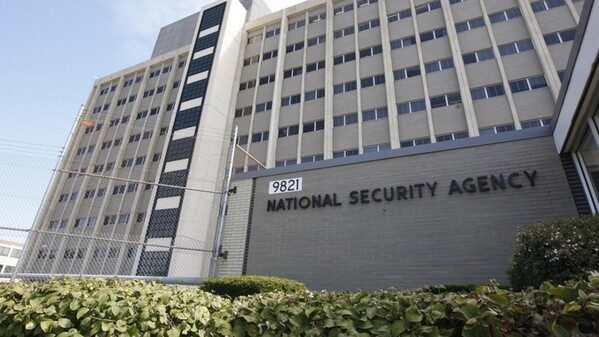DATAGATE SCANDAL, MUCH ADO ABOUT NOTHING

After about three years, we are witnessing the second “psycho-drama” involving the intelligence services of the USA and the governments of the rest of the globe.
The “Wikileaks” scandal had placed Julian Assange in the center of the stage and had seen private Manning acting as the deep throat and sacrificial victim in the story. Manning is, for the moment, the only person condemned for the leak (35 years in prison).
Now another employee of the US government has decided to speak out – in the name of freedom of information – to the media and, what’s worse, to foreign intelligence services that are not considered “friendly” by the US administration.
The revelations of the NSA (National Security Agency) analyst Edward Snowden have not caused great damage but have provoked a number of reactions, going from the melodramatic one offered by EU Parliament head Martin Schultz to the typically French militant “fighting style” statements of PM Francois Hollande.
In the past few years we’ve seen an overexposure of the intelligence services on the media, in movies, TV shows, etc. Whether these are cause or effect of the latest scandals is yet to be determined.
We will thus trace a brief history of the fundamental events regarding this latest leak.
It must be said upfront that the recent “Datagate” scandal is only the latest in a series of scandals that have struck the Obama administration since the beginning of his second mandate (we shall not include the Wikileaks scandal, which happened at the end of 2009). It’s as if Obama’s second mandate is jinxed:
-
First, tax inspectors seem to harass certain NGO’s connected with the “Tea Party” which – behind the facade of philanthropy – serve as a means of tax deduction, thus becoming the instruments that finance the conservative parties in the USA.
-
The September 11, 2012 attack against the US consulate in Bengazi, Libya, did not only cost the life of three US embassy officers, but the career of some of the most influential among the Obama administration: the head of the CIA, General David Petraeus, whom was supposedly sacked because of an extra-marital affair, was actually fired for not putting sufficient emphasis on the role of Al Qaeda in the attack (as stated by the Republicans); the sacrifice of Petraeus saved the neck of the Secretary of State Hillary Clinton.
-
Finally, the news that the US intelligence is tapping the telephones of the AP (Associated Press) press agency in order to find out from what “sources” (which are confidential and should remain secret) they are obtaining information about the terrorist activity of Al Qaeda in Yemen.
After these events, the public opinion was ripe and ready for the latest leak.

Edward Snowden
Let’s talk about the main actor of the Datagate scandal, Edward Snowden.
Snowden is a 29 year old analyst of the NSA and computer “genius”. Despite not having completed high school (according to some he did, albeit privately), he joined the Special Forces in 2003, breaking both his legs during training, an incident which led to his dismissal. Then, because of his background as a computer specialist, he was called back into the CIA. From the CIA he moved to the NSA as an employee of the companies that the NSA outsources their work to. His responsibilities – and his salary – increased dramatically, to the point where at the age of 29 he was making 200 thousand dollars per year. He lived in Hawaii together with his girlfriend in a comfortable villa on the ocean near Honolulu. What more could one want at his age?
Yet Snowden was a troubled soul. On May 1st 2013 he obtained from his superior to be put on leave for two weeks in order to cure his epilepsy. On May 20th he left for Hong Kong, bringing his laptop filled with classified information with him. Once there, he contacted the Guardian and the Washington Post and began leaking.
On June 5, the Guardian published Snowden’s first revelations (his codename was Verax – from Latin “he who tells the truth”). In them, Verax said that the NSA, through a series of programs (the most important of which is called PRISM) and with the complicity of “big-data” (the giants of the information sector such as Google, Microsoft, Facebook, Yahoo!, Skype, Youtube, Apple…basically all of them with the exception of Twitter) and Verizon (the biggest telephone operator in the US) listened to and recorded the phone calls, e-mails and internet traffic of millions of US and non-US citizens. A “Big Brother” for which the right to privacy is a mere pretext for the abstract speculations of philosophers and jurists with too much time on their hands.
The Obama administration tried to downplay the revelations, stating that the program played a fundamental role in the fight against international terror, and that at least three terrorist attacks were thwarted thanks to the wire-tapping. This triggered the irony of the US Republicans, whom said that Obama’s second term was “Bush’s fourth term” and the heavy critique by the New York Times, which wrote: “Obama has lost all credibility”.
All of this happened as Chinese President Xi Jinping was on an official visit in the US. During which visit Obama cordially reprimanded his Chinese counterpart for the frequent hacker attacks that the Chinese directed against US government and military targets.
In the meantime, on May 9, Snowden had revealed his identity. He claimed – always on the Guardian newspaper – that China was one of the main targets of US cyber espionage and that a good deal of the 61 thousand hacker attacks against China were directed against civilians. It is easy to imagine the embarrassment of President Obama and the satisfaction of Xi Jinping who could finally reply to the cyber-moral lessons dispensed by the US.
The US government, caught off guard, tried to further limit damages by saying that the NSA program managed to stop 50 terrorist attacks, 20 of which were supposed to take place in European countries (but not in Italy, as stated by the spokesman of the Italian secret services). Also, they accused Snowden of high treason and spread the rumor that Snowden might be collaborating with Chinese intelligence. Snowden immediately denied the rumors and gained the support of the Ecuadorian government, which offered him political asylum (Wikileaks founder Julian Assange – who publicly supported Snowden and provided a lawyer for him – is currently hiding inside the Ecuadorian embassy in London). At this point the US officially asked the Chinese to extradite Snowden and send him home, but China rejected the request.
On June 23, with the blessing of the Chinese government, Snowden (who was accompanied by Wikileaks lawyer Sarah Harrison) boarded an Aeroflot flight to the Sheremetyevo airport in Moscow. The Ecuadorian embassy in Moscow sent a car to the airport which, escorted by two vehicles of the Russian secret services, took snowden from the airplane to the Capsule hotel in Sheremetyevo’s transit area. Once there, Snowden met the Ecuadorian ambassador who formalized the offer of political asylum.
The frustration of the US administration was evident. It’s secret services had been duped twice (the first time when Snowden defected). But even more importantly, they had witnessed a tightening of relations between the Russian and the Chinese, whom never saw the other with a good eye, despite the Shanghai Pact (also known as SCO – Shanghai Cooperation Organization, June 2001).
The “Snowden affair” forced the US to give in on a series of issues that were traditionally used as a lever against their political opponents: first among these was the respect of human rights. Finally, the governments of Beijing and Moscow could play the role of those that are defending a poor idealist that is being persecuted by the evil Americans. Putin could make his SORM program (the Russian wire-tapping program, usually used against dissidents) look like the counterpart of the PRISM program. The Chinese, after learning that the NSA recorded millions of Chinese SMS messages, could finally state that the US acted like poor victims, but they surely were the greatest outlaws of our time.
The governments of Russia and China had also used Snowden’s revelations to rekindle the fire with their internal public opinion, which always meets initiatives against their historical enemies with enthusiasm. Putin – former colonel of the KGB in eastern Germany during the Soviet era, then director of the FSB in Eltsin’s Russia – and the Chinese government – which still uses “re-education camps” against its dissidents – can hardly claim the high ground on human rights, but now the US couldn’t either.
The extradition request sent by the US to the Russians was met with ironic conceit, as were the furious threats of terrible repercussions on the relationships between the two countries. Putin’s reaction was borderline provocative: “Unfortunately Snowden is in transit, so he is not on Russian territory”. The US feared that Snowden could barter secret information with political asylum in Russia. It was a founded fear, as Snowden was constantly surrounded by Russian intelligence operatives during his stay in Moscow.
There followed a number of rumors, voices, confirmations and denials about Snowden’s imminent trip to Quite in Ecuador, with a stop-over in the Havana. These rumors caused a diplomatic incident when, on July 3, the “Falcon” airplane with on board the Bolivian President Evo Morales flying from Moscow was forbidden to fly over the Italian, French, Spanish and Portuguese territories for fear it might be carrying Snowden. The airplane was finally forced to land in Vienna.
Three kinds of allies
While a pleased Russian government was waiting to decide whether to extradite Snowden, he decided to make a further, shocking, statement on the Guardian and Der Spiegel newspapers. Snowden claimed that the NSA was constantly monitoring the diplomatic offices of foreign governments in Washington and New York. Snowden claimed that there were 38 targets, which included the embassies of Italy, France and Greece, the offices of the European Union, Japan, Mexico, India, Turkey and South Korea. But that was not all. The wire-tapping was not circumscribed to embassies, but was enacted abroad as well. According to Der Spiegel, the NSA had divided allied countries into three categories:
-
The USA
-
UK, Canada, Australia, New Zealand (Anglo-saxon countries that are historical allies of the US and which constitute the members of the Echelon spy system).
-
All the rest of the European countries, which can be freely probed.
Germany stood out among these, with an average of 500 million telephone and internet communications tapped by the US intelligence every month – especially in Frankfurt, where the European Central Bank and the Bundesbank are. France followed, with an average of 60 million recordings per month.
As for Italy, in December 2012 there was an average of 4 million recordings per month.
At this stage, faced with the mounting embarrassment on both sides – the spies and the spied – politicians abroad were almost forced to react. Some said that the whole thing was just a normal exchange of information with “friendly” intelligence services (we will speak later about what this term means within the intelligence community). Some said that it served to thwart terrorist attacks. Some even expressed (false) indignation, like the French, Germans, and the President of the European Parliament Martin Schultz, who stated:
“I’m shocked… I feel treated like an enemy. It is shocking to see how the USA can use measures against its closest allies that are not unlike those taken by the KGB during the cold war… I ask the US government: are we enemies?”
It would be useful to remind Mr. Schultz that the main target of the KGB during the cold war were the communist parties of western Europe (not to mention the ones of the “satellite” countries). Not only were they allies, but they were “brothers” in the name of the common adhesion to the Marxist ideology. All this happened while opposition parties, both in Germany and Italy, hypothesized an active complicity on the part of their governments that were being knowingly spied.
Once the show had started, its actors had to keep reciting, so the virulent statements of Francois Hollande (who saw the circumstance as a chance to re-gain some of the French’s lost grandeur) were followed by the more measured statements by Angela Merkel’s spokesperson. The object of the dispute was also the treaty of free exchange between the US and the EU, which the “loyal” and “sincere” Europeans feared to sign when faced with the “evil” US. Moving, isn’t it?
But the UK and Italian governments did not follow the “firm” line of the French.
-
The UK government remained silent about the whole thing, in virtue of the historical alliance with their former colony across the ocean.
-
The Italians adopted a low profile, confiding in the “surely satisfying” explanations by the US that will soon be forthcoming.
Putin, on the other hand, was happy to turn the knife in the wound. On July 1, following Snowden’s official request for asylum, he stated:
“Of course he can stay, provided he promises to stop causing problems with our American partners”.
The statement caused rage among the Obama administration, seen that Snowden was constantly under the protection of the Russian secret services. Then, on July 12, Putin added that:
“We must save this youth from the death sentence which the US have surely placed on his head”.
Meanwhile, Snowden continued – with perfect timing – to add further details to his revelations about the investigative activities of the NSA against foreign diplomatic offices on American ground. Among other things, he revealed that the code-name for the Italian embassy at the UN was Cicuta (a poisonous plant) and that of the embassy in Washington was “Bruneau” or “Hemlock” (same as Cicuta).
France continued to raise its voice, threatening to pull out of the negotiations for the treaty of free exchange between the USA and the EU. They would not, of course, and in the end they would sit at the negotiating table with the US (Germany will be there too) on July 8 to seal a deal which produced 2 million new jobs. To sabotage the deal would have been sheer madness.
Faced with the impossibility of transferring Snowden from Russia to Latin America (where several countries were willing to give him asylum), the hypothesis of receiving asylum from Russia itself became more concrete. The White House reacted furiously and threatened very grave repercussions in the relationship with Russia, among these was a boycott of Russia at the September G-20 summit in Saint Petersburg.
On August 2 Russia officially gave political asylum – though temporary, 1 year – to Snowden. After 39 days, Snowden finally left the transit area of the airport Sheremetyevo – provided that he really was there. (It is more likely that the 39 days were spent somewhere outside Moscow under the tutelage of the Russian secret services).
As retaliation, Obama canceled a meeting with Putin that was scheduled just ahead of the G-20. A move which ended up being counterproductive, as reliable sources say that during a telephone conversation between Obama and Putin, the latter said that Russia: “was put in the corner by the aggressiveness of the Americans, that did not allow them to transfer Snowden to another country”. Putin is not the kind to be frightened by threats, especially if they come from Washington. The Russian president was even praised by known dissidents and opposition leaders, which goes to confirm that the old external enemy still brings consensus to the regime.
Around mid-August, Obama made a first attempt to regain the confidence of his people. He convened a meeting with the silicon valley giants in order to enact new measures for more “transparent” wire-tapping. Meanwhile, Snowden was making his final revelations (at least with the media, we do not know what he told the Russians). According to a doc published by Der Spiegel, the EU would be top of the list in the “attentions” of the US secret services. Germany and France in particular, followed by Italy and Spain. According to the document, the US secret services have given each country a score going from 1 to 5, in a decreasing order of interest. First place is, of course, occupied by China, Russia, Iran, Pakistan, North Korea, Afghanistan. In Europe, France and Germany have a score of 3 (as does Japan in Asia). Italy and Spain scored 4. The Vatican, with a mere score of 5, seems to be totally uninteresting for the US.
The World Athletics Championships in Moscow and the worsening situation in Syria finally shifted the spotlight away from the Datagate scandal. The G-20 in S. Petersburg was also completely geared towards finding a solution to the Syrian crisis.
The events that we have described above appear as a paradigm of the relationship between intelligence and politics. A sort of “clinical case” from which emerge the problems of this gray zone that stands between saying, not saying and implying.

Bradley Manning
The overexposure of a secret world
As we mentioned earlier, in the past few years we’ve witnessed a progressive “overexposure” of the world of intelligence. Leaving out the traditional spy literature, we are referring to the film and television industry.
Aficionados of the genre are not to be blamed. The problem is that the exasperated overexposure of the intelligence community tends to draw the attention of the public opinion on a world which, for its very nature and mission, must remain hidden. If we add to this the constant attention of the mass media (press, TV, internet, etc.) which are always out hunting for a scoop, we get leakers. Members of the secret services that, for any reason, from personal rancor to greed, decide to go to the media and utilize them as an amplifier for their claims. Even worse, others may chose to use the media as a means of blackmail with regards to their former employers.
This mutual relationship between the intelligence community and the media is also the backdrop (not the cause) of the recent terrorist alarm sounded in July by the US intelligence regarding possible Al Qaeda attacks against US diplomatic offices in various regions.
Those who know the intelligence community also know that if there is a real danger, the last thing to do is to say so – it only produces panic, which would already be an achievement on the part of the terrorist (that is, unless the goal of the secret services is to create such panic). But the latest (unfounded) alarm was closely tied to the Datagate scandal, it became obvious after the government “leaked” the news that the NSA wire-tapping allowed authorities to find out about it.
Another interesting aspect of the Datagate scandal is the hypocritical ostentation of ingenuity and innocence on the part of the authorities of the “target” countries (not all of them).
The exponents of European governments and of the EU that expressed their dismay – trying to pass as the poor victims of a diabolical machination on the part of the US and invoking the respect of “friendly” relationships between their country and the US – have been mocked by all those that have any notion of international relations. In politics, the word “friend” is used as an instrument of propaganda and as a “norm of language” used in official statements in front of journalists. In the world of intelligence, the word “friend” is a contradiction altogether. Whomever can be spied, must be spied (if one doesn’t spy someone else, it’s because they are not technically able to do so).
“Weddings of love” between secret services do not exist, all weddings are of “interest”. Most often they are actually just “affairs” until objectives converge. After that, it’s “enemies like before”. Those who are your friends today, may not be your friends tomorrow. Compromising information that may seem useless today could prove to be of vital importance tomorrow. History is filled with such cases.
For example, we could cite the “everlasting” friendship between the US and Israel, which did not prevent the expulsion as “persona non grata” of Israeli agents that were operating undercover in the USA.
There are serious doubts on the assumption that the US would abstain from controlling their Anglo-saxon “brotherly friends”, and even greater doubts that the courtesy would be repaid, seen the efficiency and cockiness of the MI-6.
What moves the leakers?
Speaking of the “idealism” that moves the actions of Manning and Snowden, it must be said that the “repenting” of a man who works as an intelligence operative and who suddenly realizes that the job he’s been doing for years is next-to illegal (sometimes illegal tout-court) is quite suspicious: didn’t he know about it when he got the job?
As for Bradley Manning, after being handed his sentence, he stated that he wanted a sex-change in order to finally be able to express the woman he felt he was inside. Naturally, this may seem at first like a trick of his lawyer in order to cash in on mental infirmity. There is, however, another possible hypothesis: some “government agency” could have suggested (or imposed) this sexual identity crisis upon Manning in order to make him unreliable in the eyes of the public. It would spare Manning a lot of prison time in exchange for his credibility.
Politics vs Rights
In conclusion, the modus operandi of the intelligence agencies are not and can never be the same as those of other State institutions. A thoroughly political activity such as that of the secret services cannot be measured with the same parameters used to measure rights and legality. Rights have to do with justice, politics have to do with power. Politics are about the survival of the State, in the face of which any other consideration or value, be it of the noblest kind, will be cast aside.

